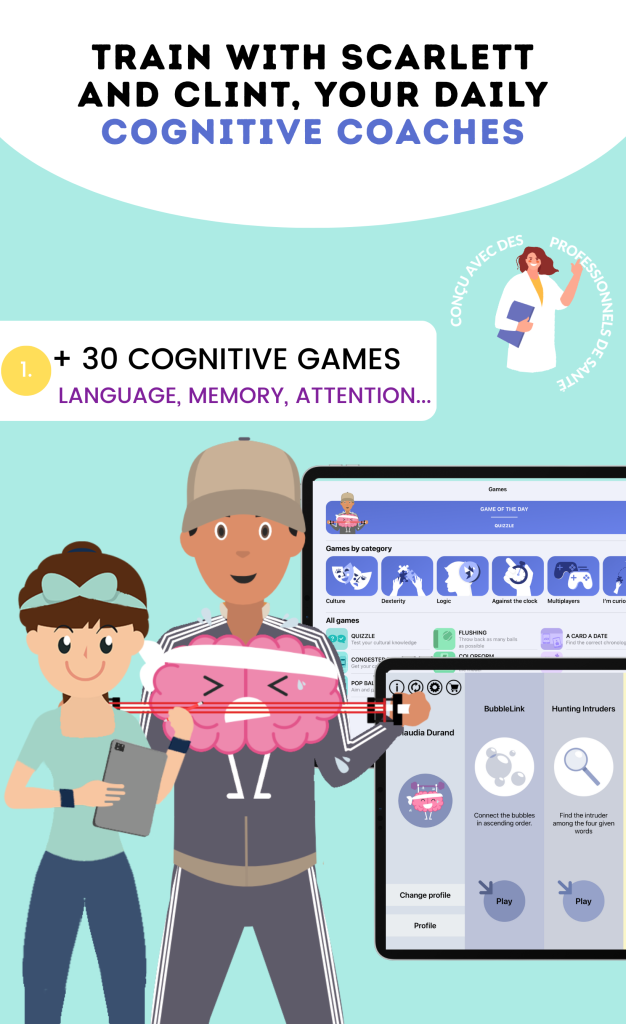Home assistance for seniors is a complex challenge that requires special attention. Seniors need assistance to stay at home safely and comfortably, but caregivers must meet varied and complex needs. This can include medication management, help with household tasks, meal preparation, transportation to medical appointments, and much more. It is essential to find effective solutions to help caregivers provide quality assistance while addressing the unique needs of seniors.
The Toolbox: A Versatile Tool for Caregivers
The toolbox is a set of tools and resources designed to help caregivers provide quality assistance to seniors. It can be customized to meet the unique needs of each senior. The toolbox may include safety tools such as smoke detectors and grab bars to prevent domestic accidents. It can also include communication tools such as mobile phones and tablets to allow seniors to stay connected with their family and friends.
The Benefits of the Toolbox for Seniors
The toolbox offers many benefits to seniors who wish to remain at home safely and comfortably. It can help seniors maintain their independence by providing them with the necessary tools to accomplish certain daily tasks. For example, the toolbox may include mobility aids such as canes or walkers to help seniors move more easily within their homes. It can also enhance their quality of life by providing tools to stay active and engaged, such as board games, books, or puzzles.
How the Toolbox Improves the Quality of Life for Seniors
The toolbox can improve the quality of life for seniors in various ways. First, it can help seniors stay healthy by providing tools to monitor their health and well-being. For example, the toolbox may include blood pressure monitors and thermometers to allow seniors to track their blood pressure and body temperature. It can also help them stay connected with their family and friends by including communication tools such as mobile phones or tablets.
Essential Tools in the Toolbox for Home Assistance
The toolbox for home assistance can include a variety of essential tools to help seniors stay safe and comfortable at home. Among these tools are safety devices such as smoke detectors and grab bars. These tools can help prevent domestic accidents and ensure the safety of seniors. Communication tools are also important, such as mobile phones and tablets, which allow seniors to stay in touch with their family and friends. Finally, health tools such as blood pressure monitors and thermometers can help seniors monitor their health and detect any potential issues.
How the Toolbox Helps Caregivers Focus Better on Seniors’ Needs

The toolbox can also help caregivers focus better on the needs of seniors. It can assist them in managing their time and energy more effectively by providing tools to organize and plan daily tasks. For example, the toolbox may include a calendar or planner to help caregivers keep track of medical appointments, medication schedules, and other important tasks. It can also help them better understand the needs of seniors by providing educational resources and information about common age-related illnesses.
The Benefits of the Toolbox for Home Healthcare
The toolbox offers many advantages to healthcare providers who deliver home care. It can help these providers deliver quality care by equipping them with tools to monitor seniors’ health, track their medical treatment, and communicate with other healthcare professionals. For example, the toolbox may include monitoring devices such as connected blood pressure monitors or glucometers to allow healthcare providers to track seniors’ vital signs remotely. It can also help reduce healthcare costs by preventing unnecessary hospitalizations through regular monitoring and early intervention.
The Toolbox: An Indispensable Tool for Healthcare Providers
The toolbox is an indispensable tool for healthcare providers who deliver home care. It can help these professionals improve the quality of their care by providing tools to monitor seniors’ health, track their medical treatment, and communicate with other healthcare professionals. For example, the toolbox may include mobile applications or medical record management software to allow healthcare providers to easily access and update seniors’ medical information in real-time. It can also help strengthen the relationship between healthcare providers and patients by fostering open communication and allowing seniors to actively participate in their own care.
How the Toolbox Can Be Customized to Meet Seniors’ Unique Needs
The toolbox for seniors can be a valuable resource, not only to improve their quality of life but also to support their autonomy based on their specific needs. Each senior is unique, with diverse needs related to their health, lifestyle, and preferences. Therefore, it is essential to customize this toolbox to ensure that the included tools are suitable for each individual situation. Here’s how customization can be done to meet the unique needs of seniors.
1. Adapting to Mobility Needs
For seniors with mobility issues, the toolbox should include equipment that facilitates movement and ensures their safety. For example:
- Canes and walkers: These tools help support mobility and provide more stability while walking.
- Wheelchairs or scooters: For seniors who have more difficulty moving long distances, a wheelchair or electric scooter may be included.
- Non-slip mats and grab bars: These devices can be placed in bathrooms or hallways to reduce the risk of falls.
By including these tools in the toolbox, it is possible to ensure that seniors remain independent while ensuring their safety on a daily basis.
2. Tools for Memory and Concentration Management
Memory issues are common among seniors, and it is important to support them in this management. The toolbox can include:
- Alarms and digital reminders: Alarms or task management applications, such as those that remind of medication intake or medical appointments, are particularly useful to avoid forgetfulness.
- Calendars and visual planners: Physical tools, such as calendars with visual reminders, can help organize days and reduce anxiety related to forgetting important events.
- Memory and attention games: Games like puzzles, crosswords, or cognitive stimulation applications can be used to improve short-term memory and concentration.
By including memory management tools, seniors can not only better organize their days but also regularly stimulate their cognitive abilities.
3. Adapting to Auditory and Visual Needs
For seniors with hearing or vision difficulties, the toolbox can be equipped with specialized tools to enhance their daily experience:
- Hearing aids and amplifiers: For seniors with hearing loss, hearing aids or sound amplifiers can be included to help them hear clearly during conversations.
- Magnifying glasses and special glasses: Seniors with vision problems benefit from the inclusion of magnifying glasses or adapted glasses to read better, see details, and perform precise tasks.
- Visual and audible alarms: Visual or audible alarms can be included to ensure safety and notification of important events such as security alerts or medication times.
These tools help improve seniors’ autonomy while ensuring they are not limited by sensory impairments.
4. Personalization Based on Personal and Social Preferences
It is essential to consider seniors’ personal preferences to customize their toolbox and promote their social and emotional well-being. Here are some examples:
- Recreational and social activities: If the senior enjoys certain activities, such as gardening, music, or reading, the toolbox can include tools to facilitate these hobbies, such as audiobooks, gardening kits, or adapted musical instruments.
- Video conferencing and online gaming applications: For seniors who wish to stay in touch with their family or participate in social activities, tools to facilitate video calls or play online games can be included.
- Personalized gifts: Meaningful items such as photo albums, keepsakes, or board games that have emotional value for the senior can also be added to stimulate their emotional well-being.
This helps strengthen seniors’ engagement in activities they are passionate about and maintain their sociability with their loved ones.
5. Tools for Comfort and Safety
Comfort and safety are paramount in seniors’ lives. The toolbox can include equipment that enhances their quality of life:
- Ergonomic pillows and heating pads: For those suffering from chronic pain or muscle tension, heating pads or adapted pillows can relieve discomfort.
- Home safety equipment: Smoke detectors, motion sensors, and security alarms help create a safe environment for the senior.
- Motion-sensor lighting: To prevent falls at night, motion-sensor lights can be added in hallways or bedrooms.
These elements contribute to making the home safer and more comfortable, thus providing an environment conducive to autonomy.
The Toolbox, a Valuable Resource for Home Assistance for Seniors
In conclusion, the toolbox is a valuable resource for caregivers, seniors, and healthcare providers. It can help improve the quality of life for seniors by providing them with the necessary tools to remain independent and engaged. It can also assist caregivers in focusing better on the needs of seniors by providing tools to organize and plan daily tasks. Finally, it can help healthcare providers deliver quality care by equipping them with tools to monitor seniors’ health and communicate with other healthcare professionals. The toolbox is a valuable resource that can enable seniors to stay at home safely and comfortably.





